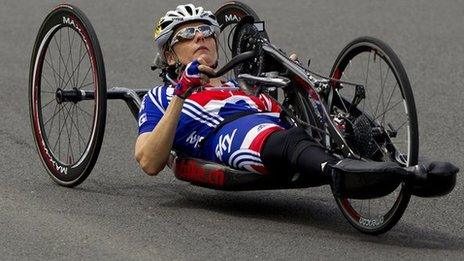IPC Swimming Worlds: GB team set for Glasgow action
- Published
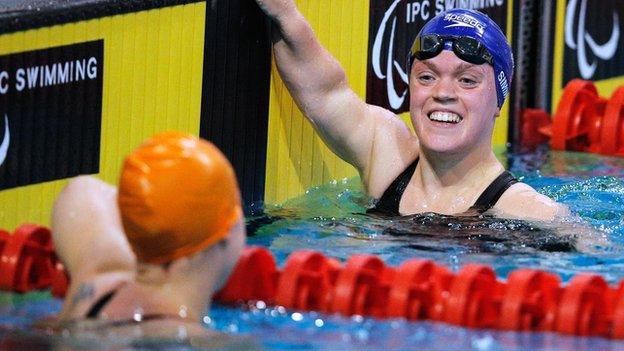
Ellie Simmonds will start her campaign on the opening morning of competition
With the Paralympics just over a year away, this week's IPC Swimming World Championships in Glasgow is a major event both for preparation and qualifying for Rio 2016.
The competition will run for seven days from Monday, 13 July at the Tollcross pool, which hosted last year's Commonwealth Games swimming events, with more than 580 swimmers from nearly 70 countries taking part, including a strong British contingent.
BBC Sport looks at what you can expect from the competition.
Why is this event so important?
These World Championships are qualifiers for next year's Rio Paralympics. The swimmers who finish first and second in each final can earn a qualifying slot for their nation for next year's Games.
Qualifying standards for the Great Britain team were particularly tough and a combination of that and a number of injuries mean there are only 14 swimmers on the GB team in Glasgow.
"The fact that we have a smaller team means we can focus on those athletes to deliver key performances," National Performance Director Chris Furber told BBC Sport.
"We have the right mix for this particular event. A home championship is so important to us and it will give the guys a lot of confidence for the next 12 months as we build up to Rio."
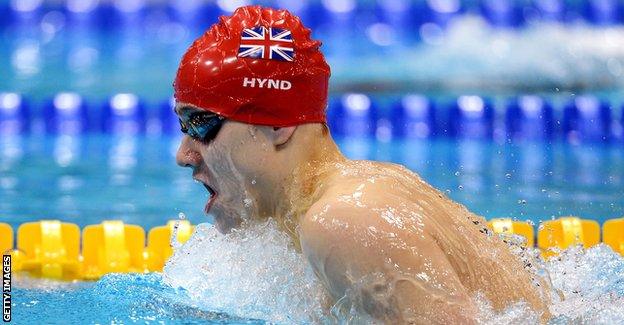
Ollie Hynd goes to Glasgow as fastest in the world this year in two of his three events
Who are the British swimmers to watch?
London 2012 gold medallists Ellie Simmonds, Ollie Hynd and Jessica-Jane Applegate will be hoping for more success in front of a home crowd.
Simmonds goes in five events but will face a tough challenge from Ukraine's Yelyzaveta Mereshko who beat her to gold in both the 50m and 100m freestyle at last year's European Championships. She is also faster than the Briton in the 400m freestyle this year.
Hynd will be aiming to retain his 200m medley and 400m freestyle titles and build on his stellar 2014, during which he won two European titles as well as gold at Tollcross at the Commonwealth Games. Applegate, meanwhile, will miss the chance to race against domestic rival Bethany Firth but will be hoping to retain her S14 200m freestyle crown.
Hopes of Scottish success rest with Andrew Mullen and Scott Quin. Mullen - fastest in the world this year in the butterfly - goes in five events in his S5 category but will face a strong challenge from 10-time Paralympic gold medallist Daniel Dias of Brazil. Breaststroke specialist Quin will be among the favourites for gold on the opening day.
While there is plenty of experience with Sascha Kindred (37) and James Crisp (32), at the other end of the age spectrum 16-year-olds Alice Tai and Tom Hamer and 18-year-old Hannah Russell will be hoping to show they are on the right track for Rio.
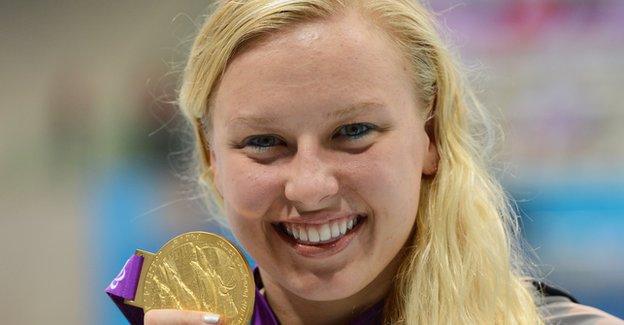
Jessica Long will be tough to beat in her S8 category
What about the overseas stars?
American Jessica Long and New Zealand's Sophie Pascoe are among the leading lights.
Long was adopted from a Siberian orphanage aged 13 months after being born without fibulas, ankles, heels and most of the other bones in her feet.
She had her legs amputated below the knee five months later and has gone on to become the poster girl of the American team and has won 12 Paralympic gold medals.
Pascoe had her left leg amputated below the knee when she was run over by her father in an accident with a ride-on mower aged three.
But she found a talent in swimming and became the youngest Kiwi to win a Paralympic medal aged 15 at the Beijing Games. She also won two golds in the Para-swimming events at last year's Commonwealth Games.
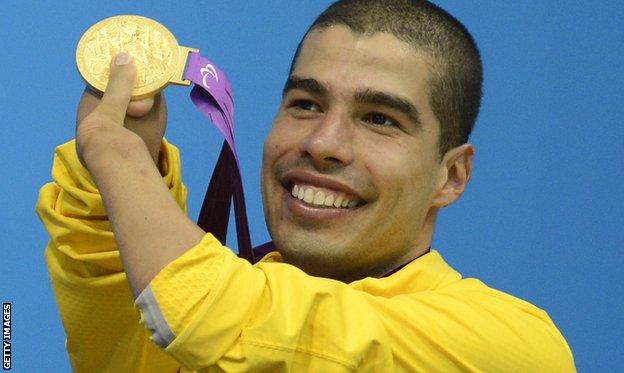
Daniel Dias will be among those leading the Brazilian medal charge
Which nations will be topping the medal table?
Ukraine and Russia dominated at last year's European Championships in Eindhoven, external with 94 and 95 medals respectively and also occupied the top two places at the last World Championships.
Both nations are strong across all categories but particularly in the more impaired classes, with Ukraine's Dmytro Vynohradets winning seven golds last year and in the visually impaired events.
A year away from their home Paralympics, Brazil will be looking for a strong display, led by their two big stars Daniel Dias and Andre Brasil, while the USA will also be strong challengers.
But Furber says he will look more at the personal bests achieved by the GB squad in Glasgow rather than their place on the medal table.
"It is about moving things forward and we are focused on performances, not on the medals," he said.
"We are about trying to prepare the athletes to perform lifetime bests when it comes to Rio, and this is a stepping stone towards that.
"At a Paralympic Games standards rise and we have to make sure our guys are well prepared to deliver their best-ever performance when they get into that really tough environment."
- Published11 July 2015
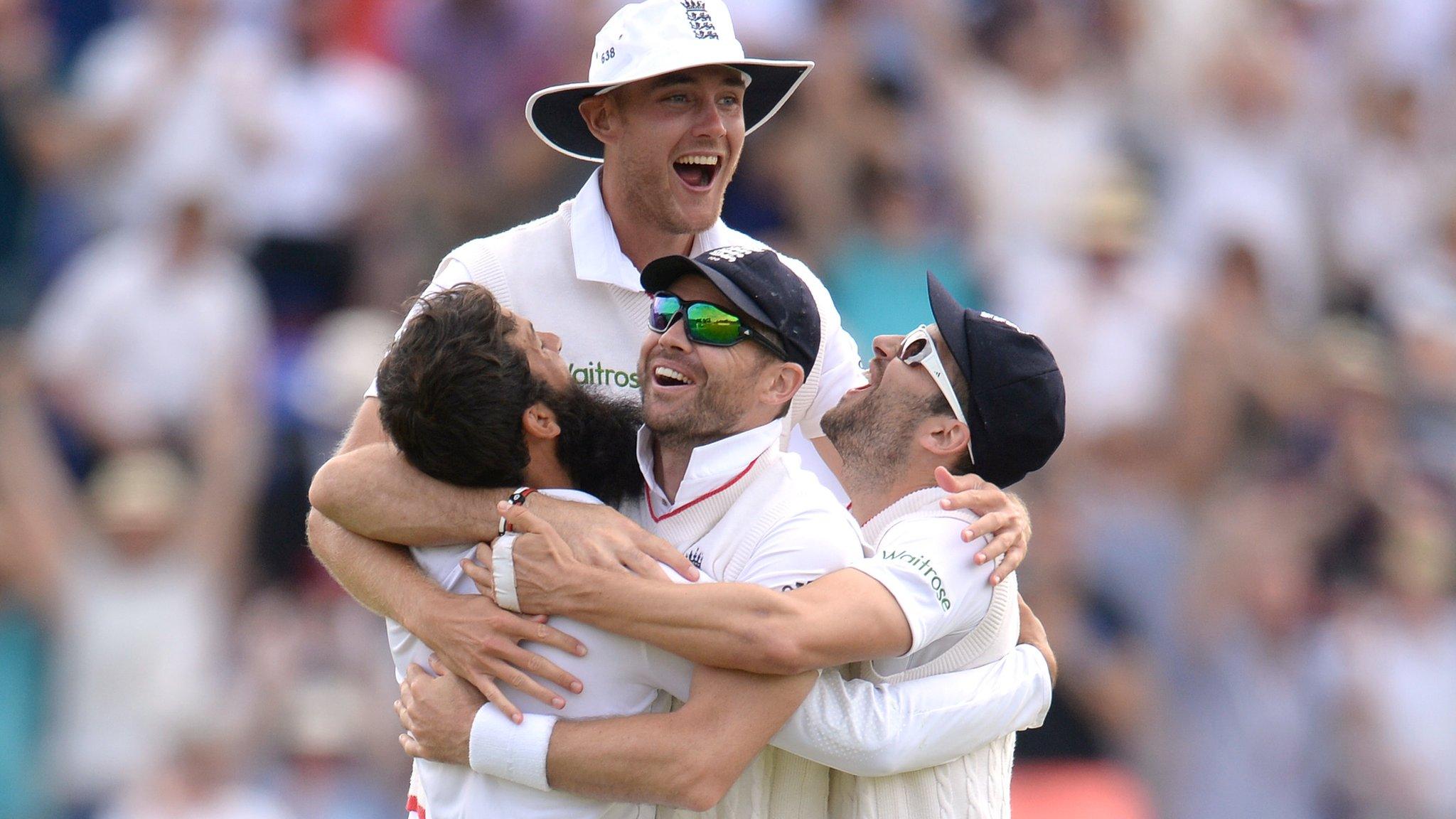
- Published12 July 2015
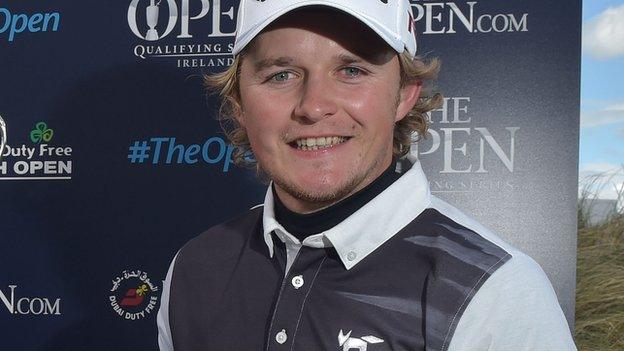
- Published11 July 2015
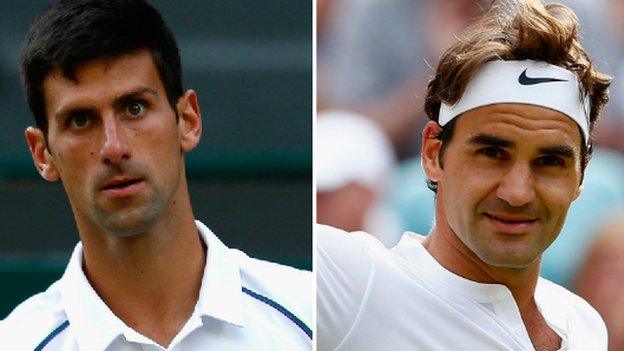
- Published5 September 2016
